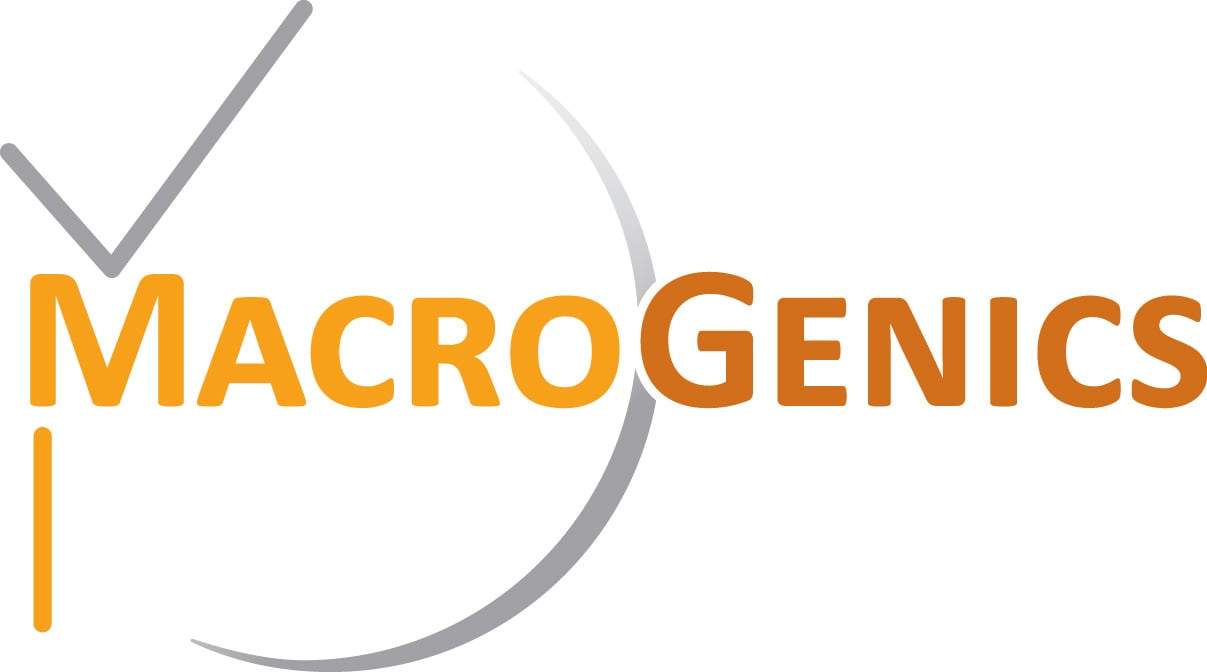MacroGenics (NASDAQ: MGNX) and Abbott Laboratories (NYSE:ABT) are both medical companies, but which is the better business? We will contrast the two businesses based on the strength of their risk, profitability, analyst recommendations, institutional ownership, earnings, valuation and dividends.
Analyst Ratings
This is a summary of current ratings and recommmendations for MacroGenics and Abbott Laboratories, as reported by MarketBeat.com.
| Sell Ratings | Hold Ratings | Buy Ratings | Strong Buy Ratings | Rating Score | |
| MacroGenics | 0 | 2 | 7 | 0 | 2.78 |
| Abbott Laboratories | 0 | 4 | 14 | 0 | 2.78 |
Earnings and Valuation
This table compares MacroGenics and Abbott Laboratories’ revenue, earnings per share and valuation.
| Gross Revenue | Price/Sales Ratio | Net Income | Earnings Per Share | Price/Earnings Ratio | |
| MacroGenics | $157.74 million | 6.00 | -$19.62 million | ($0.54) | -42.37 |
| Abbott Laboratories | $27.39 billion | 3.71 | $477.00 million | $2.50 | 23.28 |
Abbott Laboratories has higher revenue and earnings than MacroGenics. MacroGenics is trading at a lower price-to-earnings ratio than Abbott Laboratories, indicating that it is currently the more affordable of the two stocks.
Volatility & Risk
MacroGenics has a beta of 2.45, suggesting that its share price is 145% more volatile than the S&P 500. Comparatively, Abbott Laboratories has a beta of 1.49, suggesting that its share price is 49% more volatile than the S&P 500.
Profitability
This table compares MacroGenics and Abbott Laboratories’ net margins, return on equity and return on assets.
| Net Margins | Return on Equity | Return on Assets | |
| MacroGenics | -12.44% | -8.22% | -6.74% |
| Abbott Laboratories | 1.74% | 13.88% | 6.05% |
Institutional and Insider Ownership
91.1% of MacroGenics shares are owned by institutional investors. Comparatively, 72.4% of Abbott Laboratories shares are owned by institutional investors. 8.3% of MacroGenics shares are owned by company insiders. Comparatively, 0.7% of Abbott Laboratories shares are owned by company insiders. Strong institutional ownership is an indication that hedge funds, large money managers and endowments believe a company will outperform the market over the long term.
Dividends
Abbott Laboratories pays an annual dividend of $1.12 per share and has a dividend yield of 1.9%. MacroGenics does not pay a dividend. Abbott Laboratories pays out 44.8% of its earnings in the form of a dividend. Abbott Laboratories has increased its dividend for 45 consecutive years.
Summary
Abbott Laboratories beats MacroGenics on 10 of the 16 factors compared between the two stocks.
About MacroGenics
 MacroGenics, Inc., a biopharmaceutical company, focuses on the discovery and development of antibody-based therapeutics for the treatment of cancer primarily by modulating the human immune system, as well as various autoimmune disorders and infectious diseases in the United States. The company's advanced clinical product candidate is Margetuximab, a monoclonal antibody, which is in Phase III clinical trial that targets human epidermal growth factor receptor 2-expressing tumors, such as various breast and gastroesophageal cancers. It is also developing Flotetuzumab, a DART molecule that targets CD123 and CD3; MGA012, a monoclonal antibody, which targets programmed cell death protein 1 (PD-1); MGD013, a DART molecule that enables the co-blockade with a single recombinant agent of two immune checkpoint molecules; MGD019, a preclinical DART molecule designed to recognize the immune checkpoints PD-1 and cytotoxic T-lymphocyte-associated protein 4 (CTLA-4); and Enoblituzumab, a monoclonal antibody that targets B7-H3. In addition, the company develops MGD009, a DART molecule recognizes B7-H3 and CD3; MGC018, a B7-H3 antibody-drug conjugate; MGD007, a DART molecule, which targets glycoprotein A33 and CD3; Teplizumab, an anti-CD3 monoclonal antibody to treat type 1 diabetes; MGD010, a DART molecule designed to address limitations of existing B cell-targeted therapies by binding to the CD32B and CD79B proteins found on human B cells; and MGD014, a DART molecule that targets the envelope protein of human immunodeficiency virus, or HIV-infected cells and CD3-expressing T cells. It has strategic collaborations with Incyte Corporation; Les Laboratoires Servier and Institut de Recherches Servier; and F. Hoffmann-La Roche Ltd. and Hoffmann-La Roche Inc. MacroGenics, Inc. was founded in 2000 and is headquartered in Rockville, Maryland.
MacroGenics, Inc., a biopharmaceutical company, focuses on the discovery and development of antibody-based therapeutics for the treatment of cancer primarily by modulating the human immune system, as well as various autoimmune disorders and infectious diseases in the United States. The company's advanced clinical product candidate is Margetuximab, a monoclonal antibody, which is in Phase III clinical trial that targets human epidermal growth factor receptor 2-expressing tumors, such as various breast and gastroesophageal cancers. It is also developing Flotetuzumab, a DART molecule that targets CD123 and CD3; MGA012, a monoclonal antibody, which targets programmed cell death protein 1 (PD-1); MGD013, a DART molecule that enables the co-blockade with a single recombinant agent of two immune checkpoint molecules; MGD019, a preclinical DART molecule designed to recognize the immune checkpoints PD-1 and cytotoxic T-lymphocyte-associated protein 4 (CTLA-4); and Enoblituzumab, a monoclonal antibody that targets B7-H3. In addition, the company develops MGD009, a DART molecule recognizes B7-H3 and CD3; MGC018, a B7-H3 antibody-drug conjugate; MGD007, a DART molecule, which targets glycoprotein A33 and CD3; Teplizumab, an anti-CD3 monoclonal antibody to treat type 1 diabetes; MGD010, a DART molecule designed to address limitations of existing B cell-targeted therapies by binding to the CD32B and CD79B proteins found on human B cells; and MGD014, a DART molecule that targets the envelope protein of human immunodeficiency virus, or HIV-infected cells and CD3-expressing T cells. It has strategic collaborations with Incyte Corporation; Les Laboratoires Servier and Institut de Recherches Servier; and F. Hoffmann-La Roche Ltd. and Hoffmann-La Roche Inc. MacroGenics, Inc. was founded in 2000 and is headquartered in Rockville, Maryland.
About Abbott Laboratories
 Abbott Laboratories discovers, develops, manufactures, and sells health care products worldwide. The company's Established Pharmaceutical Products segment offers branded generic pharmaceuticals for the treatment of pancreatic exocrine insufficiency; irritable bowel syndrome or biliary spasm; intrahepatic cholestasis or depressive symptoms; gynecological disorders; hormone replacement therapy; dyslipidemia; hypertension; hypothyroidism; Ménière's disease and vestibular vertigo; pain, fever, and inflammation; migraines; and anti-infective clarithromycin, as well as provides influenza vaccine and products that regulate physiological rhythm of the colon. Its Diagnostic Products segment offers core laboratory systems in the areas of immunoassay, clinical chemistry, hematology, and transfusion; molecular diagnostics systems that automates the extraction, purification, and preparation of DNA and RNA from patient samples, as well as detects and measures infectious agents; cartridges for blood analysis; benchtop systems and rapid tests in the areas of infectious diseases; molecular point-of-care test systems for influenza A and B, RSV, and strep A; cardiometabolic test systems; drug and alcohol test systems, as well as remote patient monitoring and consumer self-test systems; and informatics and automation solutions for use in laboratories. The company's Nutritional Products segment provides pediatric and adult nutritional products. Its Cardiovascular and Neuromodulation Products segment offers rhythm management, electrophysiology, heart failure, vascular, and structural heart devices for the treatment of cardiovascular diseases, as well as neuromodulation devices for the management of chronic pain and movement disorders. The company also provides blood and flash glucose monitoring systems, including test strips, sensors, data management decision software, and accessories for people with diabetes. The company was founded in 1888 and is headquartered in Abbott Park, Illinois.
Abbott Laboratories discovers, develops, manufactures, and sells health care products worldwide. The company's Established Pharmaceutical Products segment offers branded generic pharmaceuticals for the treatment of pancreatic exocrine insufficiency; irritable bowel syndrome or biliary spasm; intrahepatic cholestasis or depressive symptoms; gynecological disorders; hormone replacement therapy; dyslipidemia; hypertension; hypothyroidism; Ménière's disease and vestibular vertigo; pain, fever, and inflammation; migraines; and anti-infective clarithromycin, as well as provides influenza vaccine and products that regulate physiological rhythm of the colon. Its Diagnostic Products segment offers core laboratory systems in the areas of immunoassay, clinical chemistry, hematology, and transfusion; molecular diagnostics systems that automates the extraction, purification, and preparation of DNA and RNA from patient samples, as well as detects and measures infectious agents; cartridges for blood analysis; benchtop systems and rapid tests in the areas of infectious diseases; molecular point-of-care test systems for influenza A and B, RSV, and strep A; cardiometabolic test systems; drug and alcohol test systems, as well as remote patient monitoring and consumer self-test systems; and informatics and automation solutions for use in laboratories. The company's Nutritional Products segment provides pediatric and adult nutritional products. Its Cardiovascular and Neuromodulation Products segment offers rhythm management, electrophysiology, heart failure, vascular, and structural heart devices for the treatment of cardiovascular diseases, as well as neuromodulation devices for the management of chronic pain and movement disorders. The company also provides blood and flash glucose monitoring systems, including test strips, sensors, data management decision software, and accessories for people with diabetes. The company was founded in 1888 and is headquartered in Abbott Park, Illinois.
